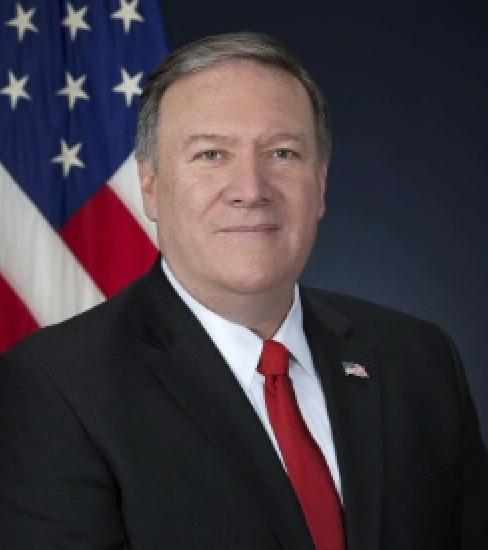Pompeo to Britain: Huawei Threatens U.S. Security
The smarter way to stay on top of the multichannel video marketplace. Sign up below.
You are now subscribed
Your newsletter sign-up was successful
Secretary of State Mike Pompeo said that if Britain makes a deal to use Huawei tech in their telecom systems, the U.S. may not be able to share intelligence information with its historic partner.
That came in an interview with Sky News and in comments elsewhere on the Secretary's trip to London, where he said China was trying to divide the Western Alliance through bits and bytes rather than bullets and bombs.

The FCC is currently proposing to deny broadband subsidy funding to Chinese telecoms, and is voting Thursday (May 8) on a proposal to deny China Mobile's long-standing petition to interconnect with U.S. networks. FCC chair Ajit Pai said this week that Huawei is definitely a national security threat.
Reltaed: Huawei Indicted for Theft, Fraud and More
Pompeo told Sky that, when it comes to Huawei and ZTE, another suspect Chinese telecom, "We don’t believe you can have those technology in your systems and still have a trusted network."
Related: ZTE, Huawei Excluded from Government Contracts
He said the U.S. has been crystal clear on that point, although the President did signal a less than get-tough policy on ZTE, at least when it came to U.S. tech.
The smarter way to stay on top of the multichannel video marketplace. Sign up below.
The Commerce Department struck a deal with ZTE lifting the ban on U.S. tech imports to the company. The ban was issued after ZTE was found not to have complied with a U.S. sanction agreement after it was discovered that the company was supplying technology to Iran and North Korea. The President had signaled the likelihood that Commerce would help ZTE after the Chinese government approached him about the impact on Chinese jobs of Commerce's ban.
But while the U.S. might be providing tech to the company, Pompeo told Sky: "We don’t believe you can have those technologies in your systems and still have a trusted network. We’re happy to continue to look at technology and see ways we might achieve that, but the United States for its part will only participate in trusted networks. We will only share America’s information with those networks that we are confident aren’t under the control of China or China’s government. And so there’s real risk, if countries choose that path, that we won’t be able to participate in those networks."
Asked if that could threaten the U.S.'s security relationship with Britain, he said both that he was confident they would find a way to remain partners, but also said "we certainly will never put America’s national security sequence in a network that we don’t have confidence in," suggesting "the way" would be for Britain not to use Huawei technology.
Pompeo, in a press availability earlier in the day, said that he was confident the U.K., "more broadly," would "never take an action that will break the special relationship." But he clearly spelled out what such an action might be.
"As a matter of Chinese law, the Chinese Government can rightfully demand access to data flowing through Huawei and ZTE systems," he said. "Why would anyone grant such power to a regime that has already grossly violated cyberspace? What can her majesty’s government do to make sure sensitive technologies don’t become open doors for Beijing’s spymasters?
"Insufficient security will impede the United States ability to share certain information with trusted networks," he said.
"This is exactly what China wants; they want to divide Western alliances through bits and bytes, not bullets and bombs," Pompeo warned. "We know that 5G is a sovereign decision – we respect every nation’s right to make its own choices – but it must be made in the broader context, the broader strategic context of China’s efforts throughout the world."
Contributing editor John Eggerton has been an editor and/or writer on media regulation, legislation and policy for over four decades, including covering the FCC, FTC, Congress, the major media trade associations, and the federal courts. In addition to Multichannel News and Broadcasting + Cable, his work has appeared in Radio World, TV Technology, TV Fax, This Week in Consumer Electronics, Variety and the Encyclopedia Britannica.

